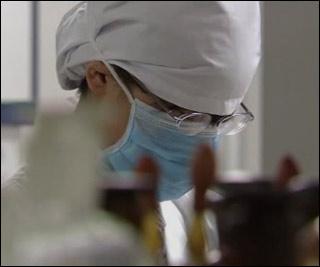
SINGAPORE: Singapore and Australia are partnering in its research efforts to combat emerging infectious diseases.
One area of focus is to develop more effective vaccines to immunise adults from tuberculosis.
This was revealed at an inaugural symposium organised by Singapore's national research agency, the Agency for Science, Technology and Research (A*Star) and Australia's National Health and Medical Research Council.
The platform facilitates scientific exchange between scientists from the two countries.
Tuberculosis remains a major health problem in the region because of its high morbidity rate.
There are also signs of the disease's resistance to all major anti-tuberculosis drugs.
The World Health Organisation figures for 2008 estimate that 1.3 million people died from tuberculosis, with Southeast Asia having the most number of deaths.
In Singapore, there has been a rising number of new tuberculosis cases, among residents.
The last reported figure was 1,478 in 2010.
The Health Ministry attributes this to increased global travel and a rising ageing population which may result to decreased immunity.
Of these, the older age group continue to make up a significant proportion and this is the group that needs attention.
Of the 1,478 new cases, almost 60 per cent were 50-years-old and above.
Professor Lee Eng Hin, Senior Fellow at A*STAR, said: "When you have an ageing population, you are also worried about decreased immunity to certain diseases, so I think we have to be aware that we need to look at vaccines and treatment to the more exposed people especially in adulthood.
"The current vaccines you hear about is actually developed for children. And they give you a very good protection for a number of years. But when you reach adulthood then the protection actually wanes. So what they are trying to do right now is trying to develop vaccines to look at the adult part.
"So are there different vaccines that can be used to immunize adults? Or can we look at vaccines that sort of ride on the BCG and excite it to make better immunity for the adults?"
The two-day symposium will also focus on influenza.
Asia has historically been the epicentre for the emergence of new influenza viruses and experts believe that the next pandemic will emerge from this region.
The 2009 flu pandemic in Asia, part of an epidemic of a new strain of influenza A virus subtype H1N1, afflicted at least 394,133 people in the region, with 2,137 confirmed deaths.
Following the symposium, the National Health and Medical Research Council and A*Star will identify key issues and develop a S$3.5 million joint grant call for research.